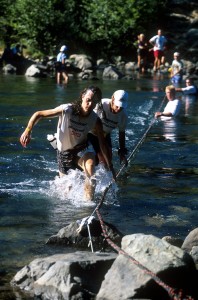 Whatever you think of Bill Clinton, you have to give him this: the guy doesn’t mess around with his health. He had heart issues (a quadruple bypass followed by stent surgery); he did the research; he talked to people (because if you are a former president everyone takes your calls) and decided to go on a vegan diet. He isn’t strict (he’ll eat the occasional morsel of fish) but he avoids most meat protein as well as dairy and eggs. Basically, he lives on plants. He’s lost a lot of weight. He looks good. He feels healthy.
Whatever you think of Bill Clinton, you have to give him this: the guy doesn’t mess around with his health. He had heart issues (a quadruple bypass followed by stent surgery); he did the research; he talked to people (because if you are a former president everyone takes your calls) and decided to go on a vegan diet. He isn’t strict (he’ll eat the occasional morsel of fish) but he avoids most meat protein as well as dairy and eggs. Basically, he lives on plants. He’s lost a lot of weight. He looks good. He feels healthy.
Well, you say, it’s easy for an ex-president to go vegan. Clinton has a busy schedule but it’s mostly riding in limos and private jets. If he drops something, that guy will pick it up. That guy with an earpiece who’s always standing next to him.
But you…you’re training. You’re running three miles a day. You’re biking 20. You’re storing up nutrients for the next leg of the Pacific Crest Trail. You can’t do all that on kale, quinoa and olive oil.
Yes, you can, says Scott Jurek, who might be America’s toughest athlete. Jurek, 38, has won the 100-mile Western States Endurance Run—seven times in a row—and virtually every other major U.S. ultramarathon. He’s run 166 miles in 24 hours, which is the U.S. record. When he’s training, he runs up to 120 miles a week. And he’s 100-percent vegan.
Jurek, who says he “grew up as a backwoods Minnesota boy, hunting and fishing,” came to veganism after subsisting for years on McDonald’s fries and chicken sandwiches. (In one of those true-life juxtapositions that would seem too contrived if you saw it in a movie, his conversion to vegan eating started with a conversation with his ex-wife while standing in line at McDonald’s.)
Now he’s written a book with a perfect title, Eat & Run, on how to get the right calories (and enough of them) to train like a madman and stay healthy.
Don’t expect immediate results. “It took a year to see any benefits,” Jurek told the Minneapolis Star-Tribune. “I had more energy within a few months, and then I noticed shorter recovery times [after races]. But I don’t think it makes a difference on race day. I did it because I wanted to be healthier and enjoy my 50s, 60s, 70s and 80s.”
Photo by permission, via Scottjurek.com.









